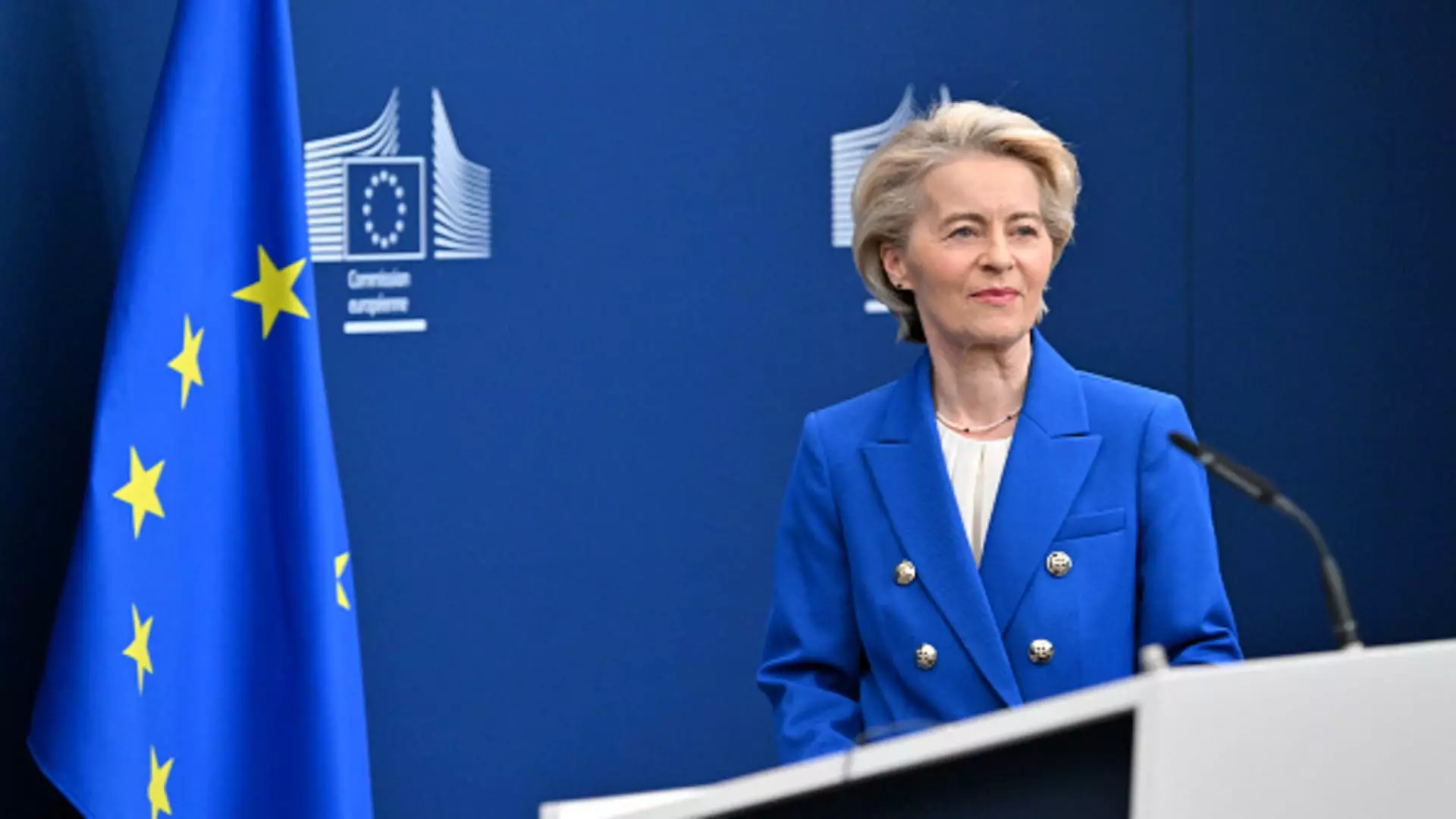The dawn of a new era in European defense appears to be upon us, heralded by European Commission President Ursula von der Leyen’s ambitious proposal for a “ReArm Europe Plan.” This initiative aims to mobilize an eye-watering €800 billion ($841 billion) to bolster Europe’s self-defense capabilities and support Ukraine amid ongoing tensions. While the sheer scale of funding presents an unprecedented opportunity, it is essential to critically analyze the motivations driving this move and the societal implications it may usher in.
First and foremost, the call for increased defense spending marks a pivotal shift in European security policy that underscores the urgency of the current geopolitical climate. Von der Leyen’s assertion that Europe is in an “era of rearmament” resonates deeply amid the specter of Russian aggression. However, this approach raises pressing questions: Is arming Europe the solution, or will it lead to a precarious arms race?
Von der Leyen’s plan includes €150 billion in loans enabling member states to invest in critical military capabilities—ranging from air defense and artillery systems to cyber warfare mechanisms. While supporters of the initiative argue that a robust European defense is vital for long-term stability, one must contemplate the potential trade-offs. Could the reallocation of such substantial funds destabilize investment in essential public services, such as healthcare and education that are equally crucial for societal resilience?
There’s an inherent contradiction within the push for military spending that flies in the face of a progressive agenda. The pursuit of a militarized Europe contrasts sharply with the values of peace, diplomacy, and economic equality that underpin liberal ideals. By prioritizing defense budgets over the pressing social needs of citizens, Europe risks alienating its populace, fostering an “us versus them” mentality rather than encouraging collaboration and unity.
Moreover, as the EU leadership gears up for discussions on the ReArm Europe Plan, we must be wary of nationalism’s dangerous resurgence in response to security fears. Countries like Poland are clamoring for increased spending, a stance that inadvertently promotes a protectionist mindset — one that could alienate smaller nations and exacerbate existing divides within the EU. This misalignment of security priorities threatens to erode the solidarity that is essential for effective collective action.
Critics also express concern that bolstered defense spending may galvanize more militaristic responses rather than encourage diplomatic resolutions. With the ever-present specter of a multipolar world order, European nations could easily find themselves caught in geopolitical frictions that only serve to benefit the arms industry and militaries, rather than the very citizens they are meant to protect.
The Path Forward: A Balanced Approach
While a robust defense strategy is undeniably important, it is equally imperative that Europe holds true to its foundational values of peace and cooperation. A balanced approach to security must involve not just an increase in military capabilities, but also concerted efforts toward diplomacy and conflict resolution. Therein lies the challenge — how to effectively respond to immediate threats while also fostering long-term stability through engagement rather than aggression.
Von der Leyen’s proposal raises pivotal questions that extend far beyond mere dollar signs. This is not simply about military preparedness; it’s about the very identity and integrity of Europe as a force for good in the global community. To galvanize public support for this ambitious plan, European leaders must articulate a coherent vision wherein increased defense spending does not come at the expense of the community-focused policies that define European liberalism.
In the coming hours and days, as EU leaders convene to discuss the ReArm Europe Plan, they have an opportunity to redefine Europe’s approach to security. Will they choose to foster a militarized continent susceptible to divisive rhetoric, or will they steer Europe toward a path that emphasizes collaboration, resilience, and a shared vision for the future? Only time will reveal the answer, but the stakes have never been higher.


Leave a Reply